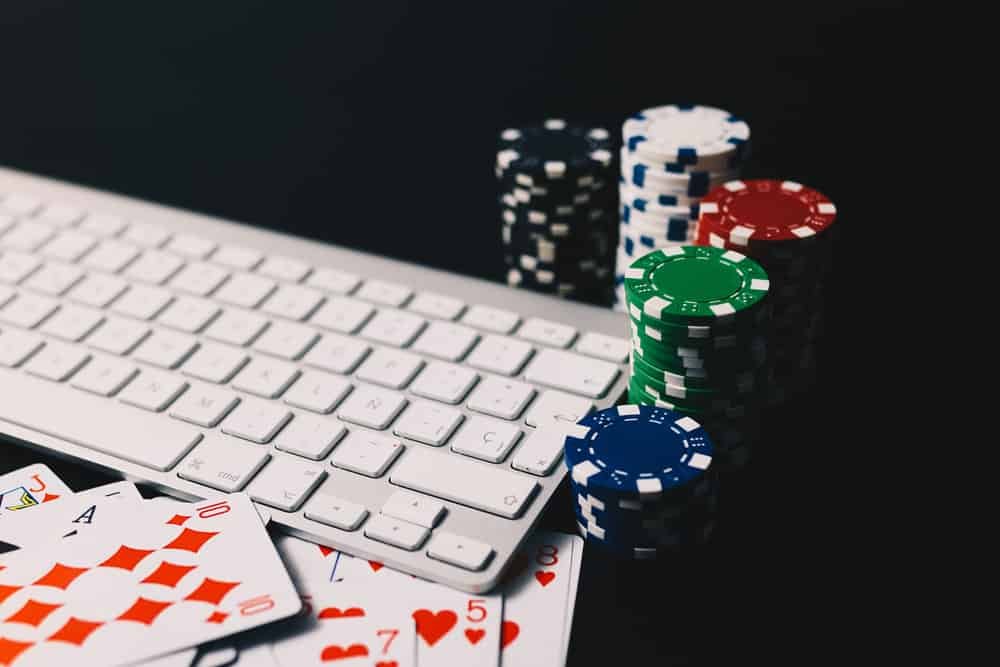Last Updated on January 7, 2024 by Gamesver Team and JC Franco

Playing poker is fun, but is it beneficial to your life? What if I told you that there are many benefits to playing poker? What if I told you that the benefits are all-encompassing in that they will boost your physical, emotional, and mental wellbeing? Well, it’s true, and I am going to share 20 benefits of playing poker with you.
There are at least 20 benefits of playing poker. My top 10 are:
- Poker improves on learning/studying ability,
- Boosts mathematical skill,
- Develops social skills,
- Teaches patience,
- Develops logical thinking skills,
- Improves focus and concentration,
- Teaches discipline,
- Can be played by anyone (inclusive game),
- Teaches money management,
- Develops good judgment skills.
In addition to this, poker-playing also teaches: emotional stability in changing situations, how to win and lose graciously, how to deal with conflict appropriately, how to read people and situations, impulse control, how to think analytically, observation skills, quick thinking, and goal-setting skills.
It sounds like a lot to get from playing poker, doesn’t it? Well, this is just the tip of the iceberg. If you haven’t given the many benefits of playing poker much thought in the past, now is a good time to start – read through each of the 20 brief explanations below.
1. Poker improves on learning/studying ability.
Most people are not too inspired to learn and study, but when there is a chance to earn big rewards, studying suddenly becomes easier to do. Of course, the basis of poker is not as complex as it seems. Once a poker player has the hang of it, it can become easier to do. Poker provides the incentive for people to use their brains and learn the skills required to get ahead.
2. Boosts mathematical skills.

Believe it or not, having a basic understanding of mathematics is vital for being successful at poker. If you understand at least some math, you are in a good position to learn. Poker players start to think mathematically when they realize that it can help their poker game. Take, for example, in a game of No-Limit Hold ‘em poker, you will need to understand basic gambling math and probability math. These include understanding and being able to calculate implied odds, expected value, pot odds, and so on.
3. Develops social skills.
Poker is not a particularly rowdy game, but it does develop social skills. Most poker players will form friendships over poker nights and evenings at the casino. If you are looking for an active social life with people of a similar mindset, poker can provide that.
4. Teaches patience.
There is nothing particularly fast about a game of poker. Games are slow and require a great deal of patience. In fact, some games can take many hours! If you want to excel and win at poker, you have to be patient; so players learn this characteristic fairly quickly.
5. Develops logical thinking skills.
In most poker games, you won’t know the other players and won’t be able to guess what cards they have and how they play. It takes a bit of logical thinking at every step of the process to ensure that you glean the information you need and then use it wisely.
6. Improves focus and concentration.

In order to win at poker, you need to be quite observant. It’s not a good idea to get into a game and be readily distracted by what might be going on around you. By focusing and concentrating, players can pick up on tells, body language, and changes in attitude. It takes concentration to note these small changes, and the payoff can be quite significant.
7. Teaches discipline.
Being disciplined; this is something that all top poker players have in common. Being disciplined means that players don’t act just because they are tempted, and they don’t take big risks without doing calculations. They don’t get distracted easily, they don’t act rashly, they are courteous to other players, and they keep their emotions in check. Being undisciplined could result in significant losses.
8. Can be played by anyone (inclusive game).
Some sports and games are only suited to athletes with certain physical abilities and skills. This means that some people are left out or cannot participate due to physical disabilities. Poker is not the same. Poker is a game that most people can learn, play, and enjoy.
9. Teaches money management.
If a poker player is reckless with his winnings or capital, he will soon lose everything and be in a bad position. When playing poker, especially as a career, players need to learn to be careful with their money. As a player gets more experience, they learn to manage their money better and so, poker is a good teacher of money management.
10. Develops good judgment skills.
Winning a game of poker takes good judgment. Players need to rely on skill and luck to win. Part of the skill required involves learning good judgment. Judging whether other players are bluffing or not, will take careful consideration. The more a player is exposed to the game, the more they will learn about the value of judgment and how it works.
11. Teaches emotional stability in changing situations.

Poker is not a fast game, but it can be a stressful game, especially when the stakes are high.
Many gamblers will be on the edge of their seat at some point during the game, but that doesn’t mean that they can outwardly show their panic and stress. Regardless of what emotions a player feels in the game, they need to maintain a level head and be calm and courteous.
The first few games you play will probably be quite hard for you to contain your emotions, but as you learn that it gives too much away, you will learn to control how you react. Having to be calm in highly stressful situations can teach emotional stability that can be used in other life situations.
12. Teaches how to win and lose graciously.
Winning and losing is a fact of poker. If you get outraged and turn tables over every time you lose, you aren’t going to earn yourself any friends and contacts in the gambling world. Pro poker players tend to be professional, regardless of whether they win or lose.
13. Teaches how to deal with conflict appropriately.
The game of poker involves a lot of bluffing and sandbagging other players. Unfortunately, taking this type of treatment too personally will only lead to a dismal end. Conflict is normal at the poker table and should never be taken personally.
While players might feel offended when they are bluffed by other players in the beginning, they do learn to depersonalize the experience and take it less to heart over time. This can be highly beneficial in other areas of a player’s life too.
14. Develops skills in reading people and situations.

For most people, reading others is hard. They cannot tell if someone is acting shifty or unusually nervous. That’s because we aren’t taught to be particularly analytical of other people in everyday life. At the poker table, it is reading skills that are most useful. You need to be able to assess the behavior of other players and understand the overall situation.
15. Develops impulse control.
A newbie poker player might act on impulse. They might bet too much, or play a hand they should rather fold just because they are feeling impulsive. When this doesn’t work out, it becomes easier to learn to control impulsive behavior. This skill can be applied to other areas of life too.
16. Develops analytical thinking skills.
Poker is all about analytical thinking. You need to be able to analyze everything about a poker game, including your cards, potential wins and losses, the odds, the other players – the list goes on. Once you start thinking analytically, you are able to do so in all areas of life.
17. Develops observation skills.
Observing other players is actually very important in a game of poker. Players at the top know-how to observe quietly and put the gathered details to work for them. By simply observing others, a player can get a good idea if a person is bluffing or not.
18. Promotes quick thinking.
You might have the mathematics skills to play poker, but, in certain situations, you will need to be able to put them to work quickly. Sometimes, poker players need to think fast and act cautiously.
19. Develops effective goal-setting skills.
Goal setting is one of the most important benefits of playing poker. In the beginning, you might not think that you have goals, but as you start winning, you will start setting goals. Perhaps you want to win a certain amount or become the next champion. This is how poker players learn how to set goals and work towards them. It’s what keeps players at the table working hard to meet their goals.
20. Can be a lucrative pastime or career.

Another potential benefit of playing poker is that it can earn the player a lucrative income. The more skilled and experienced a player becomes, the more they stand to earn.

